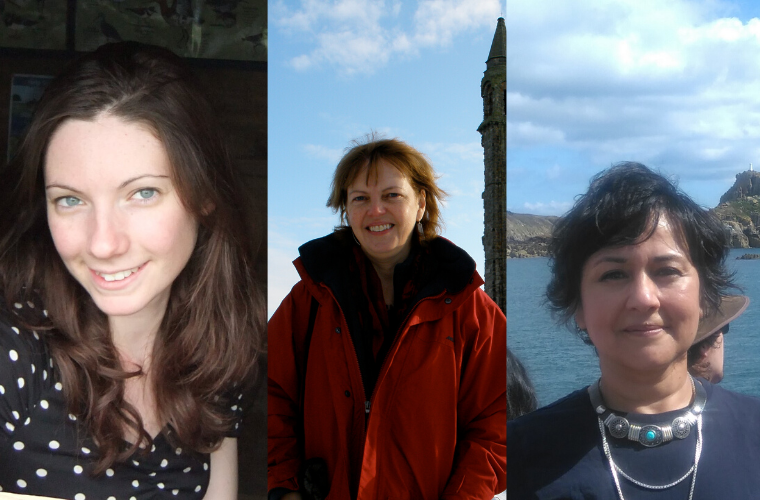University awarded over £600k in prestigious research funding

A world-leading planetary scientist, a globally-respected ecologist and a leading academic in contemporary British media from the University of St Andrews have been awarded research funding totalling over £620,000 from the prestigious Leverhulme Trust.
Professor Anne Magurran, from the Centre of Biological Diversity at the School of Biology, has been awarded a total of £301,913 in research funding from the Leverhulme Trust for her project Darwin, Wallace, Bates and biodiversity change in the Anthropocene.
The project will draw on the neglected insights of Victorian naturalists, including Charles Darwin, Alfred Russel Wallace and Henry Walter Bates, regarding the structure and dynamics of ecological communities. This will allow researchers to develop a new framework of biodiversity change that addresses the important challenges of understanding how the world’s ecosystems are being reconfigured during the Anthropocene.
Professor Magurran and Co-Investigator Dr Maria Dornelas, also from the Centre of Biological Diversity, will utilise the biodiversity database BioTIME, hosted at the University of St Andrews, throughout the project. The BioTIME database quantifies biodiversity change in nearly 400 ecosystems from around the world that have been monitored over time.
Dr Claire Cousins, a Senior Lecturer in Earth sciences at the Centre for Exoplanet Science in the School of Earth and Environmental Sciences, has been awarded a Leverhulme Trust Research Project Grant to investigate signs of microbial life trapped within unusual salt deposits collected from an Arctic hypersaline spring that shares a similar chemistry to Jupiter’s icy moon Europa.
Dr Cousins will work with colleagues Dr Aubrey Zerkle and Dr Mark Fox-Powell, also from the School of Earth and Environmental Sciences, and Co-Investigators at the University of Glasgow, alongside the NASA Goddard Space Flight Centre, to further understand how we might one day be able to search for evidence of life preserved in salt minerals on the Europan crust using future landed spacecraft.
Dr Chandrika Kaul, Reader in Modern History, has been awarded a prestigious Leverhulme Major Research Fellowship worth over £124,000. Dr Kaul’s research specialism encompasses British Imperial, South Asian and Media History. Her forthcoming monograph is a major and innovative study of the BBC and India which breaks new ground and will be published by OUP, Oxford.
Competition for Trust Fellowships is fierce, with 169 applications received and a total of 34 Fellowships awarded.
Philip Leverhulme Prizes have been awarded annually since 2001 in commemoration of the contribution to the work of the Trust made by Philip Leverhulme, the Third Viscount Leverhulme and grandson of William Hesketh Lever, the founder of the Trust.
The Leverhulme Trust was established by the Will of William Hesketh Lever, the founder of Lever Brothers. Since 1925 the Trust has provided grants and scholarships for research and education.
Today, it is one of the largest all-subject providers of research funding in the UK, distributing at least £100m a year.
Category Awards